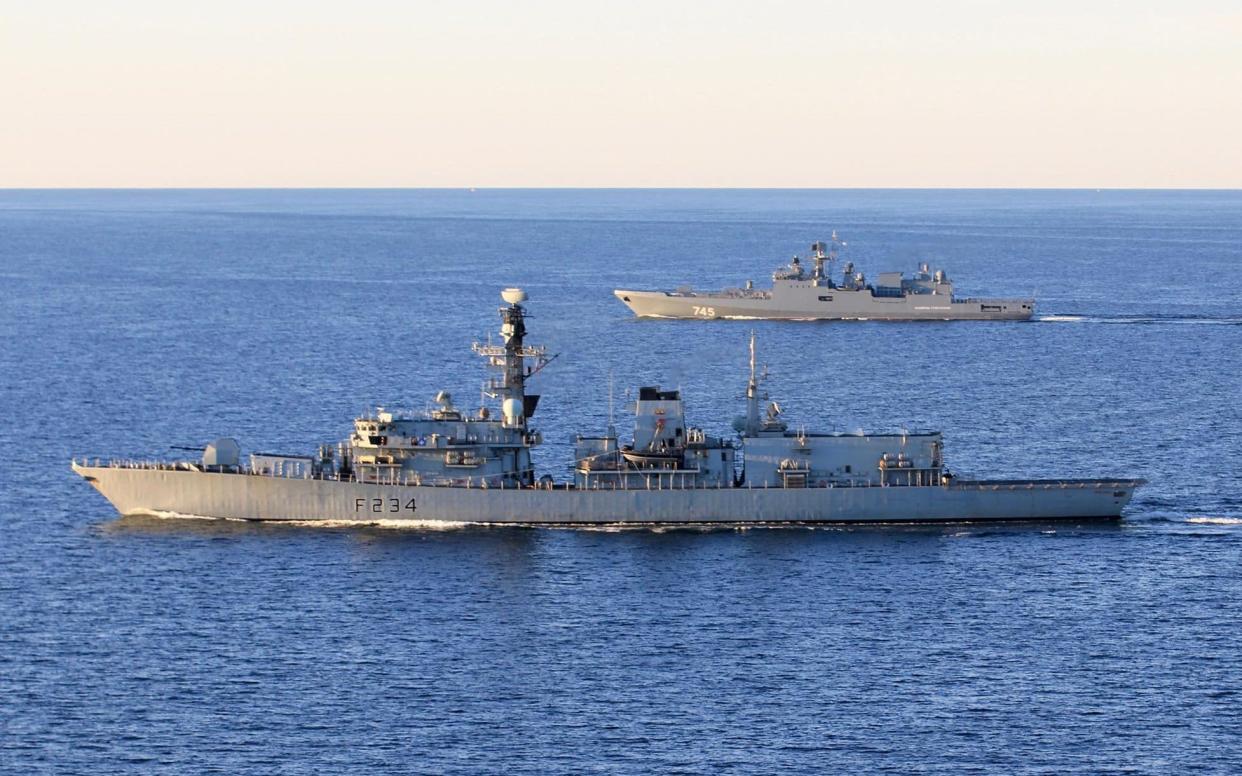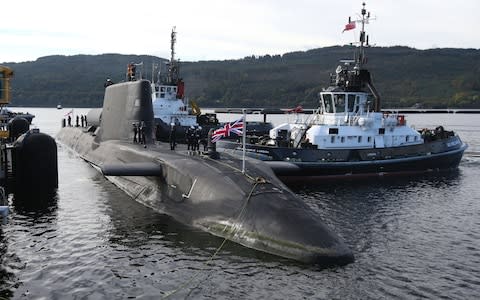Royal Navy being eaten away by 'cannibalisation' of ships for spare parts, spending watchdog warns

The Royal Navy is increasingly being forced to “cannibalise” its own warships and submarines for spare parts as funding has been cut for stores, a Government spending watchdog has said.
Instances of ships being stripped of parts so they can be fitted to other vessels more in need have risen by half in the past five years.
The National Audit Office (NAO) investigation was published as a former First Sea Lord said it was further evidence the Armed Forces were being hollowed out by years of cuts.
One retired officer said there was an epidemic of cannibalisation, and the demands of constantly juggling parts between vessels was badly undermining morale among Naval engineers.
The NAO warns that the practice is officially considered a last resort, but has risen by 49 per cent since 2012, with engineers having to strip parts from other equipment nearly 800 times last year.

Type 23 frigates and Astute Class submarines are particularly affected, alongside Merlin helicopters. Parts are increasingly being taken from Astute class submarines while they are still on the production line, causing delays in the building programme.
An internal 2012 Naval study also found that in half the cases for Type 23 frigates, the cost of cannibalisation was at least, or more expensive than, the cost of a new part.
Lord West a former First Sea Lord, said the report was “extremely worrying”.
He said: “It reflects my view that there is a dreadful hollowing out going on in defence.”
He said cannibalisation, also called ‘store robbing’, undermined ships’ readiness for operations.
He said: “Twenty years ago we were doing half the amount of store robbing and that was too much then.
“It impacts on the operational readiness of our ships and it also has a huge impact on morale because people are trying to do maintenance on theses ships.”
One former Naval officer said cannibalisation had reached “epidemic” proportions in the Royal Navy.
Warships returning from operations were being stripped of parts within hours of mooring, so that they could be fitted to other ships preparing to deploy. Ships on lower readiness and training tasks were being left without parts.
He said: “Your engineers are required to manage this and there’s no respite for them. You get alongside and just as everyone else is standing down, they have to prepare to remove and handover equipment. It’s definitely a contributory factor to the lack of morale in the engineering section.”
A Royal Navy spokesman said: "Less than half a percent of parts we use come from swapping components, and we only do this when it’s absolutely necessary to get ships out of port and back onto operations more quickly.
“We continue to make improvements to how we manage this long-established practice."

 Yahoo News
Yahoo News 
